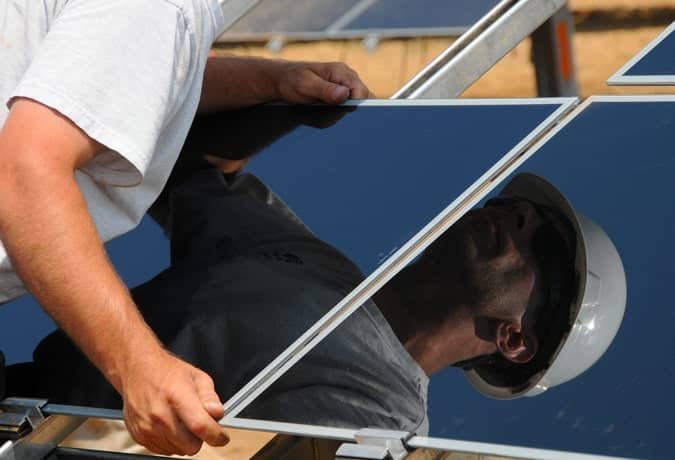Our certified solar experts will guide you through every step of the process to ensure your home’s solar panel installation is straightforward and worry free.

RxSun handles obtaining all the permits from your city necessary to install your solar panels.

RxSun is happy to assist you with obtaining a permit from your HOA if necessary.
RxSun has an exclusive solar panel installation partner, which benefits our customers in several ways:
Unlike some companies that have a 4 – 6 month wait for a qualified installation contractor,
with RxSun you can go solar within 90 days.

The expert solar installation team will work with your electric utility to complete the interconnection of your new solar system to the grid.
An electrical inspection of your newly installed solar system is required before it can be turned on. Your installation team will handle scheduling this with your city and complete any adjustments necessary for approval.
Once your solar panel installation is complete, RxSun will complete the application paperwork for the programs your home needs to be enrolled in so you can start saving with the sun.

RxSun will submit your home’s solar system to your utility company’s
net metering program.

RxSun will submit your system for the SREC incentive program. The state sends the payment for the credit value your system is assessed for to our office, and we forward it to you within 4 business days.
Learn about installation, financing options and how you can save on utilities.
calculate solar costGet an instant estimate for your location with our Solar Savings Calculator.
calculate solar savingsNo, you don’t need a special roof for solar panels. Most roof types can accommodate solar installations. However, the condition and age of your roof are important to consider. If your roof needs replacement soon, it’s often more cost-effective to do so before installing solar panels.
The duration of solar panel installation can vary based on several factors, including the size and type of your system. However, on average, the physical installation process usually takes 1 to 3 days. The entire process, from consultation to completion, might take 2 to 3 months.
Before installing solar panels, consider asking about the total cost, estimated energy savings, and time to recoup your initial investment. Understand the warranty duration and what it covers. Inquire about the panel’s life expectancy, maintenance needs, and the type of technology used. Lastly, verify the installer’s experience, qualifications, and if they have the necessary permits.
Yes, running your air conditioner on solar power at home is possible. However, there are a few factors to consider:
Overall, while running your AC on solar power is possible, consulting with a solar installation professional is best to assess your specific needs and ensure the system is set up correctly.